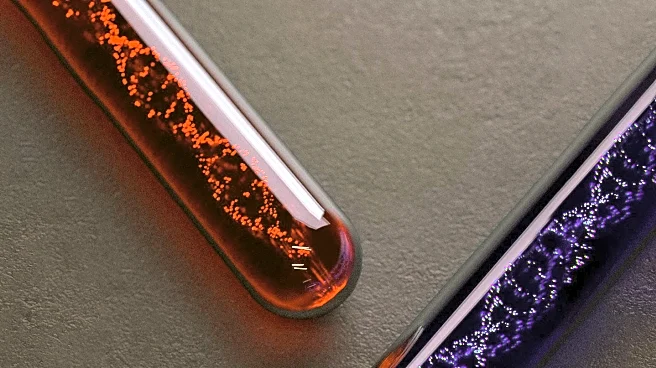What's Happening?
Israeli startup RedC Biotech is pioneering a method to produce red blood cells from stem cells in large bioreactors, aiming to revolutionize the global blood supply. Founded by Dr. Ari Gargir, the company seeks to provide a reliable and cost-effective blood supply to hospitals worldwide, bypassing the limitations of human donation. The process involves cultivating stem cells, which can divide and expand indefinitely, to produce universal red blood cells. This innovation could potentially save millions of lives by addressing blood shortages, particularly in less advanced regions where many die due to insufficient or substandard blood supplies.
Why It's Important?
The development of lab-grown blood by RedC Biotech could significantly impact the healthcare industry by providing a stable and universal blood supply. This innovation addresses ethical concerns related to blood donation and could alleviate shortages that lead to preventable deaths. The ability to produce blood on an industrial scale could transform emergency medical care and routine surgeries, ensuring that blood is available when and where it is needed. This advancement also holds potential economic benefits by reducing the costs associated with blood collection, storage, and distribution.
What's Next?
RedC Biotech plans to scale up its operations, moving towards preclinical and clinical trials, and eventually full-scale manufacturing. The company envisions establishing factories worldwide to produce universal red blood cells under local regulations, ensuring reliable access in regions most affected by shortages. This expansion could attract interest from healthcare providers and governments seeking to improve their blood supply systems.
Beyond the Headlines
The ethical implications of lab-grown blood are significant, as it could reduce the dependency on human donors and address concerns about blood safety and compatibility. Additionally, this technology could lead to advancements in other areas of regenerative medicine, potentially paving the way for lab-grown organs and tissues.










